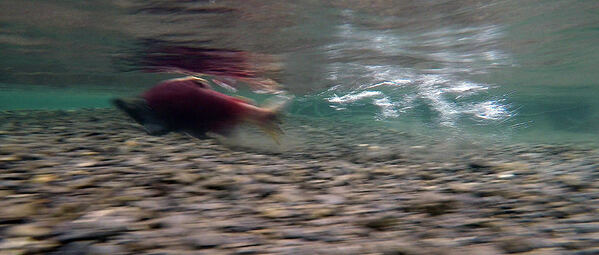YES Oil Spill Response, NO Shepard Point

Problem: A deep water port at Shepard Point (proposed under the false pretext as an oil spill response location) would allow devastating resource extraction and actually hinder oil spill response effectiveness.
Goal: An accessible and effective rapid oil spill rapid response facility in an environmentally sound and safe location for Eastern Prince William Sound, in Cordova.
NEWS UPDATE: After more than 25 years of community opposition and controversy, the Army Corps of Engineers granted the Permit for the Shepard Point road and deepwater port on October 15, 2017.
STAY UPDATED: EPC has an email list serve it will be sending to keep the public updated about this poorly proposed port project. We are working on solutions and alternatives. Please email: eyak@redzone.org noting you would like to get updates when they occur regarding the Shepard Point proposed project.
A Message from EPC Founder Dune Lankard on YouTube
HISTORY
Cordova, Alaska was one of the original staging areas for the Exxon Valdez oil spill response team and today continues to harbor the largest oil spill response fleet in Prince William Sound. Cordova's oil spill response capabilities and the strategic location of a deepwater port are of great importance. The Eyak Preservation Council has opposed the Shepard Point deepwater port development even though the project has long masqueraded as one that would increase oil spill response capabilities in the region - there are better locations to develop a port.
The problem: a deepwater port at Shepard Point would pave the way for devastating resource extraction and actually hinder oil spill response effectiveness.
Currently, a deepwater access port does not exist in the eastern portion of Prince William Sound. Shepard Point would provide the necessary infrastructure to facilitate logging, mountain-top removal coal mining, and road development into an otherwise roadless area. Any of these destructive development projects would destroy boreal rainforest and threaten the vital riverine habitat that has supported healthy wild salmon runs, Native culture, and the economic sustainability of the region.
While a deepwater access port at Shepard Point raises a variety of environmental concerns, the project has also met widespread community opposition because the location actually decreases oil spill response effectiveness. Currently, the SERVS-certified oil spill response team, which is made up of local commercial fishing vessels, operates out of the Cordova small boat harbor. Shepard Point is located five nautical miles (nm) north of Cordova. The remote Shepard Point location increases the travel time for oil spill response teams and resupply vessels by 3.9 nm for spills in Prince William Sound, by 10.1 nm for spills in the Gulf of Alaska or the Copper River Delta, and by 10.1 miles for spills in Orca Inlet. That added distance could delay response time by an hour or more.
In addition, to be effective any oil spill response staging area would need to be close to the Cordova airport, have year-round road access, and be close to town resources. Shepard Point has none of these attributes. Of the possible oil spill response facility locations in Cordova, Shepard Point is the least accessible from the airport and the farthest from town. Oil spill response planners are also extremely concerned about year-round road access because the proposed Shepard Point road would traverse 18 active avalanche chutes. Any road closure could seriously delay response time and access to response equipment.
Despite these serious problems with the Shepard Point project, proponents continue to push for the development. In the ongoing saga, EPC's efforts to expose the underlying agenda and problems with the Shepard Point project has resonated strongly with the community. In April 2010, prior to the final Clean Water Act permit decision from the U.S. Army Corps of Engineers, the Native Village of Eyak requested a suspension of the permit application, and as a result the Army Corps closed the permit file. However, after many holds and restarts, the Army Corps made a decision to grant the permit on October 15, 2017.
EPC has stayed abreast of project developments via direct communication with USACE, submitted Freedom of Information Act requests, and has communicated project updates to the public on a regular basis. Our collective goal is to redirect the spill port funding to a site that truly makes economic, environmental and common sense.
For over 20 years, EPC and others have succeeded in stopping the ill-advised Shepard Point project. Now is the time to shift gears and take a proactive approach. The community of Cordova has waited long enough and deserves to have an oil spill response facility that makes strategic, economic and environmental sense.
EPC supports two of the four potential locations selected for the Cordova oil spill response facility (Orca Cannery and Fleming Spit). Orca already has a paved road (therefore year-round, 24/7 access), an inter-tie, three-phase wiring, and plenty of room for indoor and outdoor oil spill response equipment. Fleming Spit is also on the existing road system and is closer to the harbor and town of Cordova.
